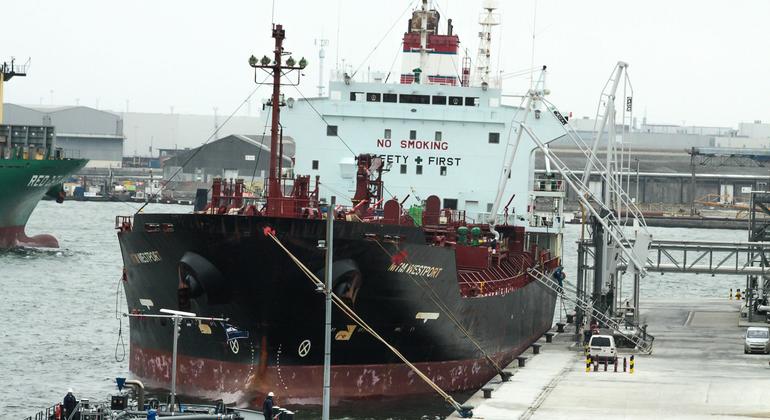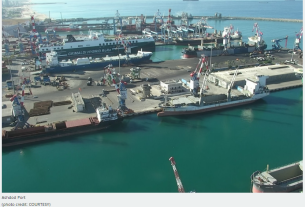The framework, developed after years of negotiations and approved in draft form in April, would for the first time establish a mandatory global fuel standard and a greenhouse gas pricing mechanism for ships.
Together, they are intended to steer the world’s maritime fleet – which carries about 80 per cent of global trade and produces nearly three per cent of global emissions – toward net zero emissions by 2050.
Not perfect but balanced basis
Arsenio Dominguez, Secretary-General of the International Maritime Organization (IMO), highlighted the “special importance” of the week-long session for the agency and its work.
He acknowledged that some countries see the plan as too ambitious, while others believe it does not go far enough.
“The IMO Net-Zero Framework is not perfect,” he told delegates, “However, it provides a balanced basis for our further work ahead of its entry into force in 2027.”
“This process has been inclusive and thorough,” Mr. Dominguez added, urging delegates to approach the talks “with diplomacy and respect.”
“Here, we are diplomatic and respectful to one another, we listen to everyone’s opinion, we take steps forward and we are always looking to improve in this ever-changing sector.”
IMO currently has 176 Member States and three Associate Members.
The framework
The session of the IMO’s Marine Environment Protection Committee runs through Friday, when delegates are expected to vote on adopting the framework as an amendment to the main international treaty for reducing air pollution from shipping and improving energy efficiency.
If adopted, the rules would apply to all ocean-going vessels over 5,000 gross tons, which together account for around 85 per cent of shipping-related emissions. National governments will be responsible for enforcement.
Ships would be required to gradually reduce their reliance on carbon-emitting fuels and pay a price for excess emissions, with revenue expected to be reinvested in clean energy transition measures and support for developing countries.
If a ship emits below a certain threshold, it can bank or trade its surplus units, and similarly, should a vessel fully switch to zero or near-zero emission fuels, it qualifies for financial rewards.
Strong headwinds
The proposal, however, faces strong headwinds from United States.
In a joint statement last week, US Secretaries of State, of Energy, and of Transportation said the framework amounted to “a global carbon tax on the world,” warning that it could raise shipping costs by more than 10 per cent and harm American consumers.
The statement warned that Washington would consider imposing visa restrictions, commercial penalties and new port fees on countries supporting the framework.



